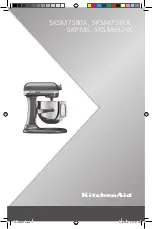
16
15–
15+
5
10
0
5
10
–15
+15
5
10
0
5
10
STEREO GRAPHIC EQ
1K
500
250
63
125
16K
2K
4K
8K
12 CHANNEL COMPACT INTEGRATED LIVE SOUND MIXER
RIGHT
LEFT
dB
30
20
10
O
O
40
50
5
5
U
60
10
SUB
1
ASSIGN
C
ZE
LE
S
TAPE LEVEL
O
O
MAX
PHONES LEVEL
UTILITY OUT LEVEL
BREAK SWITCH
(MUTES ALL CHANNELS)
U
+20
O
O
U
+20
O
O
U
+10
O
O
EFX
1
RETURN
jacks and engage the
BREAK SWITCH
. Instant-
ly, the entire main mix is switched off and the
intermission entertainment is switched on.
Even if you just want silence during the
breaks, this switch can act as a “Master Mute”
switch, simply by plugging nothing into
TAPE
INPUT
.
PHONES LEVEL
After the
MAIN MIX
Fader
, the mix
is sent through this knob, allowing you to set
headphone levels as desired without disturbing
the main mix level.
When a channel’s
SOLO PFL
is engaged,
the main mix will be replaced by the solo sig-
nal, allowing the engineer to audition channels
without disturbing the main mix.
The stereo
PHONES
jack
can drive any
standard headphones to very loud levels. Walk-
person-type phones can also be used with an
appropriate adapter.
Note:
Please see the “Safety Instructions” on
page 2 for information on hearing protection.
UTILITY OUT LEVEL
After the
MAIN MIX
Fader
, the mix is
sent through this knob, allowing you to set the
levels at the
UTILITY OUT
as desired with-
out disturbing the main mix level.
SUB FADERS
The typical exit for channel signals is through
one or more sub mixes. The sub mix signal is
fi rst controlled by this fader, which provides 10
dB of gain fully up, unity gain at the “
U
” mark,
and is effectively muted fully down.
From here, the signal goes to two very differ-
ent locations:
SUB OUT
sends the sub mix
directly out of the mixer via its TRS jacks; and
SUB ASSIGN
sends it to the
MAIN MIX
Fader
.
LEFT/RIGHT SUB ASSIGN
As discussed in
ASSIGN
, the only way to
get channel outputs to the main mix is via the
sub mixes, and this switch is the key.
Continuing the assumption made in
ASSIGN
, Subs 1 and 2 are the left-right stereo path
from the channels to
SUB
Faders
1
and
2
,
with
SUB 1
carrying the left signal and
SUB 2
carrying the right. Engage
SUB 1 ASSIGN LEFT
and
SUB 2 ASSIGN RIGHT
, and you’re done.
Take a look at the block diagram on page 22 —
it’ll explain this and more, but in hieroglyphics.
3. Slowly turn up the
MAIN MIX
Fader
until feedback just begins to occur. BE
CAREFUL! Feedback can occur quickly
and become very LOUD, very fast.
4. Cut the appropriate slider until feedback
stops.
Suggestions for better sound:
• For better vocal sound, set the 125, 250,
and 16K sliders to +5.
Note:
Make sure the singer is within 3 to
6 inches of the microphone. No amount of
EQ can save a wandering minstrel.
• For more presence, set the 4K and 8K slid-
ers to +5.
• To warm up the overall sound, set the 2K
slider to –5.
• REMEMBER, LESS IS BETTER.
TAPE LEVEL
You can adjust the incoming level of your in-
termission entertainment, independent of the
main mix level controls, via this feature. Here’s
how: Patch the stereo device into the
TAPE
INPUT
. Put the device in play. Engage the
BREAK SWITCH
and set the
TAPE LEVEL
knob as desired. Assuming the
MAIN MIX
Fader
is set, you should hear the device.
BREAK SWITCH
No, when we say
BREAK SWITCH
, we’re
not asking you to break the switch, we’re of-
fering you a very handy feature. When it’s time
for the talent to take a break, the engineer
usually wants to stretch his legs. But walking
away from a live mixer in a crowded club can
be somewhat unnerving — what if some goon
starts dinking around with the faders?
No problem. Just plug in your intermission
entertainment device to the
TAPE INPUT









































